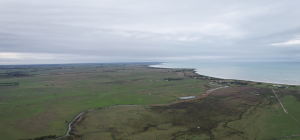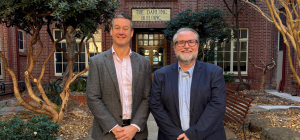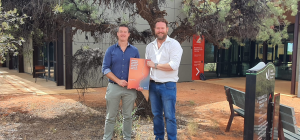
The recent floods in eastern Australia and regional South Australia have served as an unfortunate but important reminder of the devastating impacts that extreme weather events can have on communities. While it’s too early to determine the contribution of climate change to these events, we know that the severity and frequency of extreme events, such as floods and droughts, are likely to increase under climate change and there is strong evidence that our climate is already changing – Australia’s hottest and driest year occurred in 2019, with a record-breaking number of days over 39°C; while 2021/2022 was one of Brisbane’s wettest ever summers and Sydney has had its wettest start to any year since 1956.

In its latest report on climate change1 released on 28 February 2022, the Intergovernmental Panel on Climate Change (IPCC) stated that human-induced climate change is causing dangerous and widespread disruption in nature, affecting the lives of billions of people around the world, with people and ecosystems least able to cope being hardest hit. Water availability (whether too much or too little; flood or drought) and water security are at the forefront of our changing climate and are critical to the future sustainability of our agriculture, urban areas, industry and human health and well-being.
Whilst Australia has made significant progress under the National Water Initiative with important benefits to communities, the IPCC report and the recent floods highlight the importance of ongoing water reform in Australia. This a conclusion reached by the Productivity Commission, which found that ongoing water reform is required to address the challenges posed by climate change, population growth and changing community expectations2,3.
Impacts of climate extremes will likely be felt in all areas but impacts will be particularly extreme in urban or ‘urbanising’ areas, where impermeable surfaces create “flashy” hydrographs that can further increase the impacts of extreme floods and droughts, along with ‘urban heating’ that will enhance the impacts of extreme temperatures. The Productivity Commission identified a future priority for Australian water reform of establishing a standard for best-practice urban water system planning, with a focus on integrated management and clear roles and responsibilities for decision-making that includes coordination between water utilities, governments, regulators, developers and land planners in water system planning2,3. The Productivity Commission also highlighted that knowledge generation and collaborative research partnerships, such as the Goyder Institute, will be important for underpinning the success of future water reform efforts to address the future challenges2,3.
As reported in our last e-news, the Goyder Institute and our research partners are currently working with the South Australian Government to develop an understanding of future urban water management options for Adelaide. The project has provided input into the Urban Water Directions Statement that was recently released by the South Australian Department for Environment and Water, and will explore potential future governance, funding and policy arrangements and integrated on-ground management options. The project forms an important part to the Water for Cities and People Impact Area of the Strategic Plan 2020-2023.
The need for ongoing water reform to address future climate change is of course not just limited to urban areas. Climate resilience is an overarching Impact Area for all of the Institute’s other Impact Areas of Water for Agriculture, Water for the Environment and Water for Mining. Future e-news articles will focus on new areas of research to address these Impact Areas to contribute to ongoing water reform in Australia.
For more information about how the Institute’s research program and its impact on water reform please contact Institute Director, Dr Kane Aldridge.
References:
- IPCC, 2022: Summary for Policymakers [H.-O. Pörtner, D.C. Roberts, E.S. Poloczanska, K. Mintenbeck, M. Tignor, A. Alegría, M. Craig, S. Langsdorf, S. Löschke, V. Möller, A. Okem (eds.)]. In: Climate Change 2022: Impacts, Adaptation, and Vulnerability. Contribution of Working Group II to the Sixth Assessment Report of the Intergovernmental Panel on Climate Change [H.-O. Pörtner, D.C. Roberts, M. Tignor, E.S. Poloczanska, K. Mintenbeck, A. Alegría, M. Craig, S. Langsdorf, S. Löschke, V. Möller, A. Okem, B. Rama (eds.)]. Cambridge University Press. In Press.
- Productivity Commission 2021, National Water Reform 2020, Inquiry Report no. 96, Canberra.
- Productivity Commission, National Water Reform, Report no. 87, Canberra.


